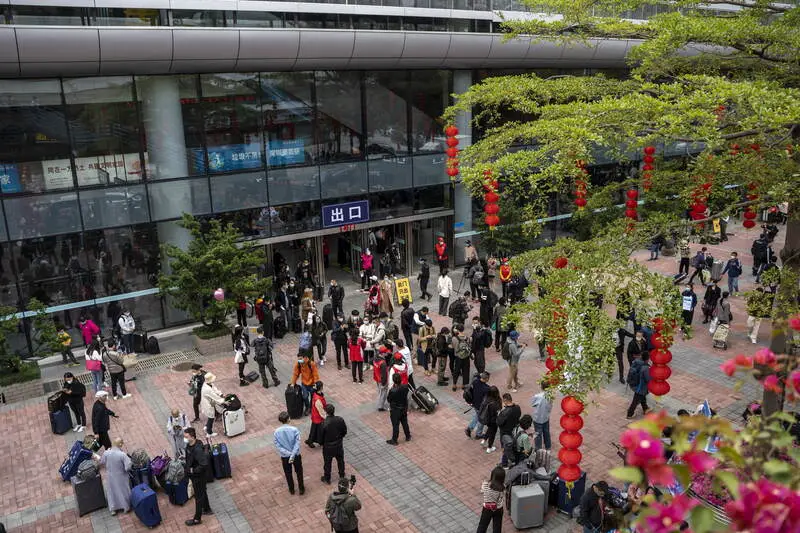
Asia-Pacific's benchmark index enters a bull market, thanks to China's reopening
Asia-Pacific's leading index entered a bull market this week, fueled by a rally in Chinese stocks from optimism surrounding the nation's reopening and the weakening of the U.S. dollar on prospects of a pivot in the Federal Reserve.
The MSCI Asia Pacific index hit a high of 162.33 on Tuesday – roughly 21% higher than its 52-week low of 133.93 reached on Oct. 24, according to Refinitiv data. A bull market is technically defined as a surge of 20% or more from recent lows.
related investing news


The index rose 1.87% on Tuesday and ended the Asia session at 161.77. In regional equities, the Hang Seng index hit an intraday high of 21,470.69 on Monday, or 47% higher than the end of October.
The Nasdaq Golden Dragon China Index also hit a bottom of 4,468.54 on Oct. 24, but has since surged more than 70% to close Monday's U.S. trading session at 7,669.75.
"The market is betting on a shallow recession in some parts of the world, while inflation keeps coming down, and on top of a successful kickstart of the Chinese economy," Saxo Capital Markets' APAC equities strategy team wrote in a Tuesday note.
"The rally has been fast and furious, so it is only natural to expect some profit-taking," they wrote in a note.
Risk-on
Saxo also said that despite the rally in Asia-Pacific markets overall, risks will continue to linger.
"The market is getting too excited about growth too early as a lot of uncertainty persists," it said.
Strategists at the firm said corporate earnings and the Bank of Japan's monetary policy remain risks for the region. Still, they said there is room for Asian markets to outperform this year.
On Tuesday, Japan's capital city recorded core inflation of 4%, topping Reuters' estimates of 3.8% and holding above the central bank's target of 2%.
"With Tokyo CPI numbers leading the broader print, there are clear signs that further upside pressures are likely to stay and continue to keep a policy tweak option alive for the BOJ," Saxo Capital Markets said.
Not all emerging markets
While the Shanghai Composite in mainland China gained roughly 9% from its October lows and Australia's S&P/ASX 200 rose 10% from recent lows – South Korea's Kospi and Japan's Nikkei 225 have shown a more volatile trajectory.
Economists at Goldman Sachs said China's reopening may not lift emerging markets in tandem.
"Typically, Korea and Brazil perform the strongest during China equity rallies, but these two markets have lagged since late November," Caesar Maasry, head of EM cross-asset strategy at Goldman Sachs said in a note.
"Outside of China we highlight Korea as a top rebound candidate given our view that interest rate volatility will decline in 2023," Maasry wrote, adding that higher interest rates have weighed on what it calls "growth" stocks.
Source: https://www.cnbc.com/2023/01/10/msci-asia-pacific-enters-bull-market.html






